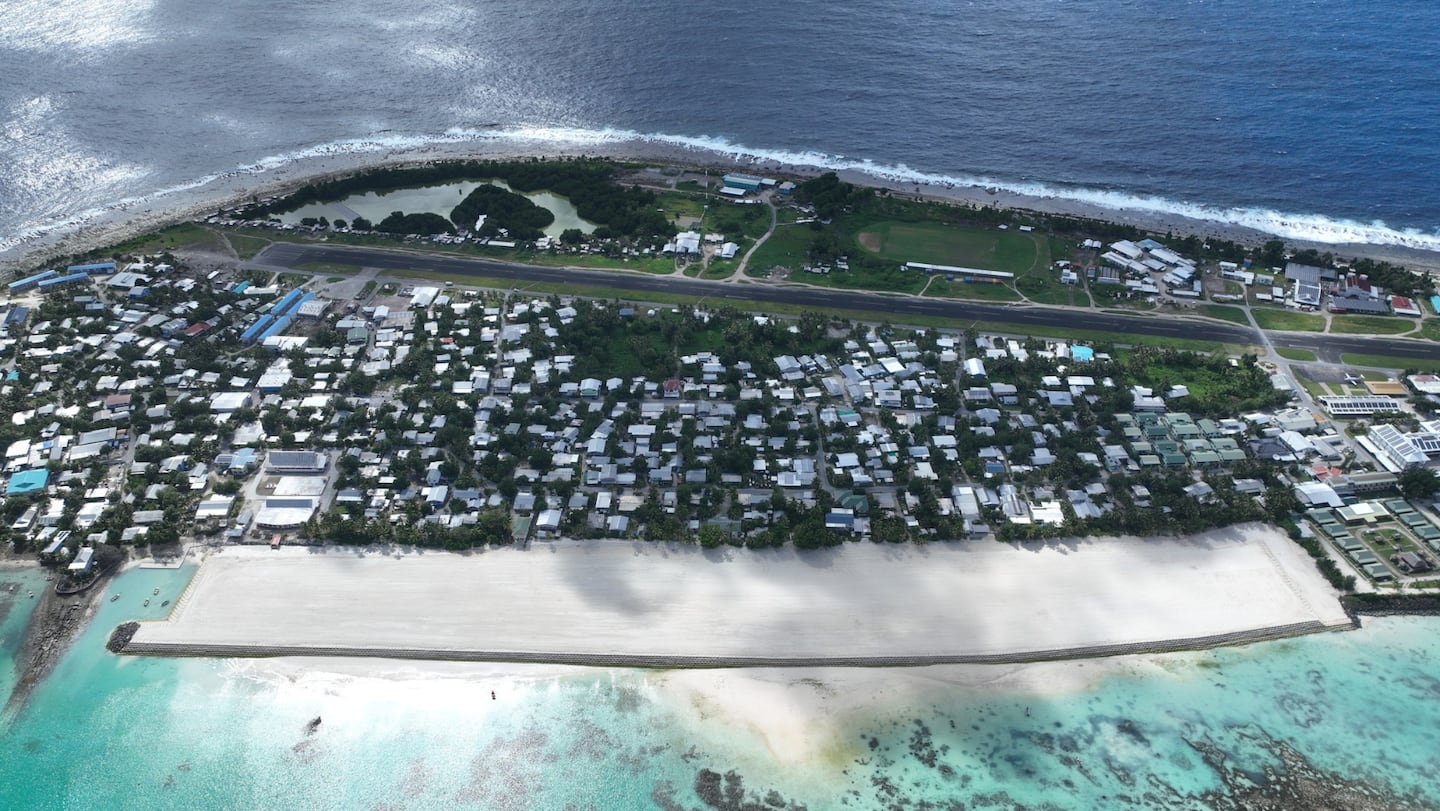A landscaping effort to raise safe and sustainable land on the Pacific Island of Tuvalu has been completed.
The capital, Funafuti, is now ready to begin the plantation of trees, and crops and the building of walls to help combat high sea-level rises.
It’s called the Tuvalu Climate Adaptation Plan (TCAP).
TCAP coordinator Allen Puga Resha says at the 28th Conference of the Parties (COP 28) in the UAE they will also be calling for more funds and technology from larger countries to lift more islands.
“It is about 833 hectares of additional land.
“To save Tuvalu from the rising seas, the plan is to have additional safe raised land that can accommodate the whole of Tuvalu,” he says.
Keep contributing
The UN Green Climate Fund (GCF), the world’s largest climate fund, finances the TCAP and the work is being carried out by Hall Contract Australia.
At COP 28 Resha’s purpose on behalf of Tuvalu is to ask countries to keep contributing to this fund so there’s enough for the re-shaping of their country.
“We added seven hectares of safe land but we are telling the international community that we don’t have enough funds.
“We do have the scientific database but we don’t have the technology and the funds,” he says.
US vice-president Kamala Harris pledged $3 billion to the GCP in an announcement at COP 28.
This follows, President Joe Biden in September pledging $200 million to aid Pacific Island infrastructure.
Although the Pacific countries have not seen any of this money, Resha believes if they do get access to it, it could be a lifesaver for their country.
Tuvalu can be saved
“If they can contribute to the fund climate financing that would help small island countries like Tuvalu, they would be able to save Tuvalu and save the world,” he says.
Some $38.9US million has funded the TCAP project, which includes the current raising of Nanumaga and Nanumea villages.
The money has been used to lift the three islands and Resha says they will be relying on more donors to help elevate the other 15 islands of Tuvalu.
“It will take a long time to materialise. First of all, we need to sell the idea to donors - it’s not cheap and it may take up to 10-15 years before you can see the final project.
Hopefully, we can get some buy-in from the big donors,” he says.
In this year’s COP 28, the Pacific leaders will push their agenda of getting countries to help phase out fossil fuels and making sure they’re abiding by the 2015 Paris Agreement of keeping the global temperature rise to 1.5 degrees above pre-industrial levels.



